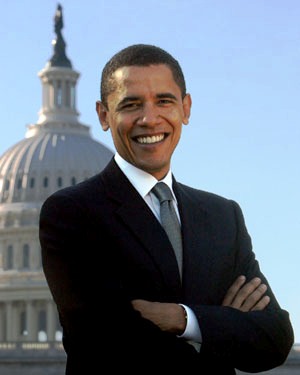New hopes for nuclear test ban treaty ratification after Obama win
 Vienna - After Barack Obama was elected president of the United States, the Comprehensive Nuclear Test-Ban Treaty Organization (CTBTO) in Vienna said Wednesday it was hopeful the next administration in Washington would ratify the ban.
Vienna - After Barack Obama was elected president of the United States, the Comprehensive Nuclear Test-Ban Treaty Organization (CTBTO) in Vienna said Wednesday it was hopeful the next administration in Washington would ratify the ban.
Although the treaty has been open for signature since 1996, the global ban on testing nuclear weapons has not come into force because several key countries including the United States have not ratified the text.
Ratification by the US would put pressure on the other countries needed to implement the test ban, Tibor Toth, executive secretary of the provisional test-ban organization, told journalists.
Toth said he was optimistic following Obama's statements during the election campaign that he would work on making the treaty part of US law.
"It will not happen in the next months, but it will happen," Toth said.
So far, the US has balked at provisions in the treaty which would allow international inspections at suspected nuclear testing sites.
China, Israel and Iran, among others, have also yet to ratify the treaty, while India, Pakistan and North Korea have not signed it so far.
Toth said he was also encouraged by a letter Obama sent to Indian Prime Minister Manmohan Singh in September, in which the president- elect said he wanted the US Senate to ratify the treaty as soon as possible, and planned to launch a diplomatic initiative to make other countries follow suit, according to Indian media reports.
If Obama found time to send this letter in the time of financial crisis, "it should be a clear indication" of his plans regarding the nuclear test ban, Toth said.
So far, 146 countries, including the nuclear weapons powers Britain, France and Russia, have ratified the Comprehensive Nuclear Test-Ban Treaty. (dpa)